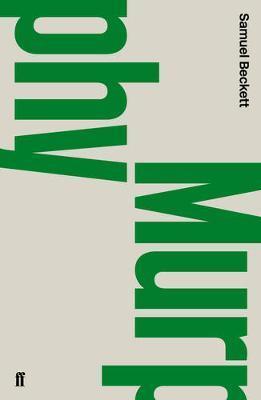MURPHY
Edited by J. C. C. Mays Murphy, Samuel Beckett's first novel, was published in 1938. Its work-shy eponymous hero, adrift in London, realises that desire can never be satisfied and withdraws from life, in search of stupor. Murphy's lovestruck fiancee Celia tries with tragic pathos to draw him back, but her attempts are doomed to failure. Murphy's friends and familiars are simulacra of Murphy, fragmented and incomplete. But Beckett's achievement lies in the brilliantly original language used to communicate this vision of isolation and misunderstanding. The combination of particularity and absurdity gives Murphy's world its painful definition, but the sheer comic energy of Beckett's prose releases characters and readers alike into exuberance.

 engine
🛠20220509.145534
engine
🛠20220509.145534





